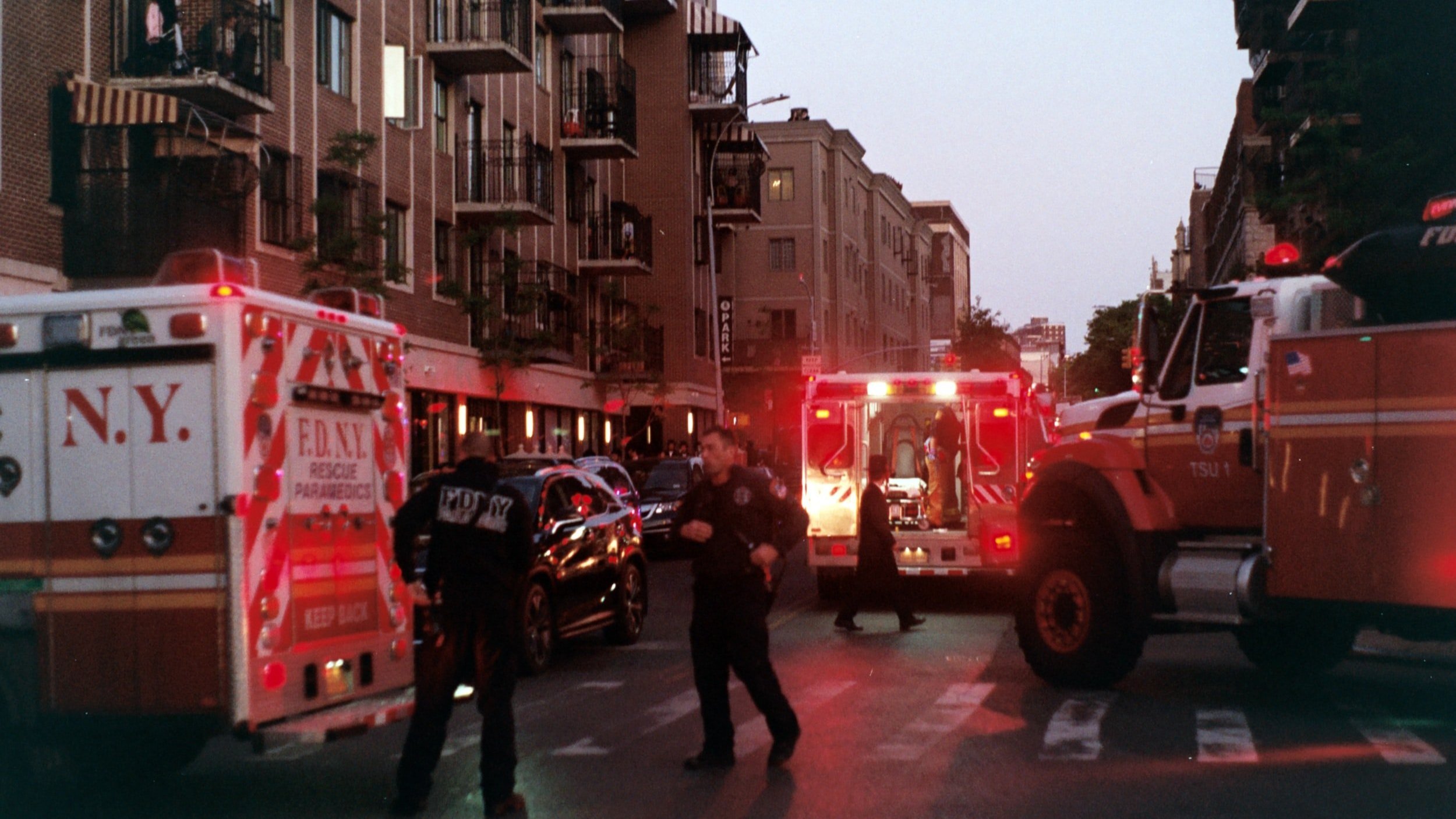
911: The Psychology of First Responders
By Simona Krasnegor – June 1, 2022
Many of us encounter stress in our daily lives, whether from school, work, social situations, or health problems. With this stress, we often develop coping mechanisms in order to manage it. First responders including firefighters, paramedics, and EMTs have a uniquely stressful work environment, dealing with the worst tragedies of human life on a daily basis. How does this stress affect first-responders as compared to stress felt by the general population?
What is a traumatic event?
A traumatic event is defined as something that triggers “fear, helplessness, or horror” in response to the “perceived or actual threat of injury or death to an individual or another.” An individual’s response to traumatic events depends on a variety of factors. The range of psychological and physiological effects is vast. Specifically, social background, biological factors, and past experiences all interact in producing a trauma response. Effects of trauma include stress disorders, anxiety disorders, and an increased tendency toward substance abuse and psychiatric illnesses.
Experts place trauma consequences into three general categories of severity. First, most people will experience mild distress responses and behavioral change. This includes trouble sleeping, increased substance use, and signs of unhappiness. Individuals experiencing mild distress often recover without treatment. The second group includes individuals with moderate, persistent symptoms like insomnia and anxiety. Psychological and medical interventions are often recommended in this case. Lastly, individuals who develop psychiatric illnesses like PTSD are categorized into a small subgroup and require specialized treatment. Of course, the number of people in each of these broad groupings varies based on the type of event. For example, terrorist attacks often affect the targeting population, then spreads to family and friends, and then the larger community as a whole. With the role of media in humans’ daily lives, we are often bombarded with many kinds of traumatic events from a distal perspective.
Medical Service Workers
In addition to the trauma, medical service workers experience stress from work demands, limited downtime, and the hierarchical nature of supervision. Ambulance workers often work long hours, leading to trouble sleeping and physical injuries. A systematic review of 27 international studies found rates among ambulance personnel of 11% post-traumatic stress, 15% depression, 15% anxiety, and 27% for general psychological distress. It is important to note that under-reporting is also a pervasive feature of the healthcare workforce, adding to the already imminent psychological impacts.
Psychological Effects: A Review
In a systemic review of high-quality studies, many responses to trauma amongst ambulance workers stood out as the most prominent. These included problems in tolerance to everyday interactions, sleep disturbances and deficits, irritability, worsened social life, and a greater sense of isolation. Twice as high as other health professions, rates of depression and anxiety, along with stress-disorders and suicidal thoughts, were found to be systemic issues faced by paramedics and dispatchers.
The combination of stressors from daily life and the experience of trauma has had a cumulative effect on ambulance personnel. One paper described the effects of ambulance work by outlining six stages. The first stage is pre-trauma and preparation for the unknown. Once staff arrives, they experience feelings of responsibility and the associated anxiety. As they continue to work, feelings of worthlessness become prevalent as certain factors remain out of their control when caring for a patient. Responders contain their emotions, but after the event, they report feelings of exhaustion, frustration, and guilt. With the repetition of this process for every 911 dispatch call, it becomes clear why first-responders are so strongly affected by their work.
COVID-19
Over the past two years, the COVID-19 pandemic has changed life as we know it. Overflowing hospitals and an increased amount of patients has burdened medical workers more so than ever. With low levels of psychological well-being already, this pandemic has affected frontline healthcare workers even more from an increased threat of contracting illnesses to heightened responsibility. With the uncertainty at the beginning of the pandemic combined with mass hysteria, the negative impact on psychological distress and mental well-being on the greater public has been higher than ever.
On the other hand, healthcare workers actually reported lower distress levels than the general population. This indicates that despite the harsh conditions of first-responders, they may display a higher level of resilience compared to the rest of the population. It should be noted that other studies found conflicting data, reporting higher levels of depression, anxiety, and post-traumatic stress in healthcare professions. That being said, more research needs to be done into the impacts of the pandemic on healthcare professionals, particularly first-responders. By understanding the mental perspective of first-responders, resources and preventative measures can be put in place to put the well-being of both workers and patients first.
Many factors influence stress, and the addition of the COVID-19 pandemic makes it extraordinarily harder to measure and compare stress levels in different communities. Ultimately, the emergency medical services community is adversely affected by their daily work. Understanding the psychological (and physical) effects in the pre-hospital community is important in preventing injury in both patients and workers. Fatigue and stress harm a worker’s ability to help a patient to his or her full potential. By preventing injury, hospitalization rates can also be decreased, helping the overall well-being of the community around us.
